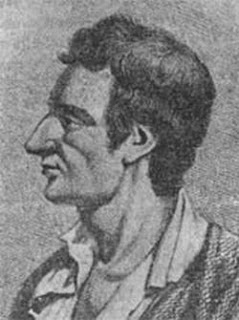Manifesto of the Equals
This document should be read alongside this article that also appeared in this July 1989 issue of the Socialist Standard.
This manifesto, drawn up by Sylvain Maréchal, for an attempt to organise an insurrection in Paris in 1796 known as the “Conspiracy of the Equals”, was never formally adopted by the conspirators. It is nevertheless a fine appeal for the establishment of the same sort of classless communist society as Winstanley and the Diggers had advocated in the course of the English revolution some 150 years previously.
PEOPLE OF FRANCE!
For fifteen hundred years you have lived in slavery and in misery. And for the

last six years you have existed in the hourly expectation of independence, happiness, and equality.
Equality is the first principle of nature, the most elementary need of man, the prime bond of any decent association among human beings. But in this you, the French people, have fared no better than the rest of mankind. Humanity, the world over, has always been in the grip of more or less clever cannibals—creatures who have battened on men in order to advance their own selfish ambitions and to nourish their own selfish lust for power. Throughout man’s history he has been gulled with fine words, he has received only the shadow of a promise, not its substance. Hypocrites, from time immemorial, have told us that men are equal; and yet monstrous and degrading inequality has, from time immemorial, ground humanity into the dust. Since the dawn of human history man has understood that equality is the finest ornament of the human condition, yet not once has he been successful in his struggles to bring his vision to life. Equality has remained a legal fiction, beautiful but baseless. And today, when we demand it with a new insistence, our rulers reply: “Silence! Real equality is an idle dream. Be content with equality before the law. Ignorant and lowborn herd, what else do you need?”
Men of high degree—lawmakers, rulers, the rich—now it is your turn to listen to us.
Men are equal. This is a self-evident truth. As soon say that it is night when the sun shines, as deny this.
Henceforth we shall live and die as we have been born—equal. Equality or death: that is what we want. And that is what we shall have, no matter what the price to be paid. Woe to you who stand in our way or try to thwart the realization of our dearest wish!
The French Revolution is only the forerunner of another, even greater, that shall finally put an end to the era of revolutions. The people have swept away the kings and priests who have been leagued against them. Next they will sweep away the modern upstarts, the tyrants and tricksters who have usurped the ancient seats of power.
What else do we need other than equality before the law?
We need not only this equality as it is written down in the Declaration of the Rights of Man and of the Citizen; we need it in life, in our very midst, in our homes. For the true and living equality we will give up everything. Let the arts perish, if need be! But let us have real equality.
Men of high degree—lawmakers, rulers, the rich—strangers as you are to the love of man, to good faith, to compassion: it is no good to say that we are only “bringing up again the old cry of loi agraire.” It is our turn to speak. Listen to our just demands and to the law of nature which sanctions them.
The loi agraire—the division of the land—has been the instinctive demand of a handful of soldiers of fortune, of peoples here and there governed by passion, not by reason. We intend something far better and far more just: the COMMON GOOD, or the COMMUNITY OF GOODS. There must be an end to individual ownership of the land, for the land is nobody’s personal property. Our demand is for the communal ownership of the earth’s resources. These resources are the property of mankind.
We say that an end must be put to the situation in which the overwhelming majority of mankind, living under the thumb of a tiny minority, sweats and toils for the sole benefit of a few. In France fewer than a million persons own and dispose of wealth that rightfully belongs to twenty millions of their fellow men, to their fellow citizens.
There must be an end to this outrage! Will people in times to come even be able to conceive that such a situation ever existed? There must be an end to this unnatural division of society into rich and poor, into strong and weak, into masters and servants, into rulers and ruled.
Age and sex are the sole natural distinctions existing between men. All men have the same needs, all are endowed with the same faculties, all are warmed by the same sun, and all breathe the same air. Why then should not all receive an equal share of food and clothing—equal both in that quantity and quality to which all shall be entitled?
